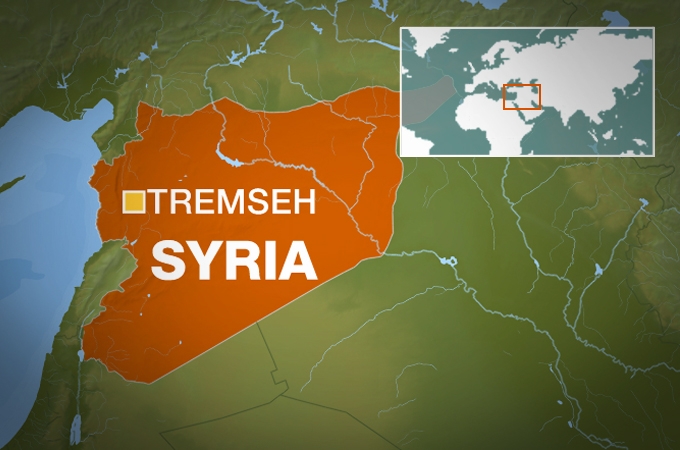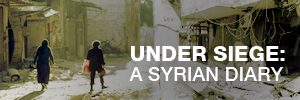Main opposition bloc urges binding resolution after activists said regime forces killed scores in Hama.

Syria's opposition has urged the UN Security Council to pass a binding resolution against Damascus following reports by activists that regime forces massacred scores in the central province of Hama.
Reports of the massacre in the village of Tremseh came after the Security Council envoys held their first talks on rival Russian and Western draft resolutions on Syria, with Moscow spurning calls for sanctions against President Bashar al-Assad's regime.
The Syrian National Council (SNC), the main opposition bloc, said on Friday: "To stop this bloody madness which threatens the entity of Syria, as well as peace and the security in the region and in the world, requires an urgent and sharp resolution of the Security Council under Chapter VII (of the UN Charter) which protects the Syrian people."

Chapter VII allows for punitive measures against regimes considered a threat to the peace, including economic sanctions and military intervention.
"We expect members of the Security Council to assume total responsibility to protect defenceless Syrians against these shameful crimes," said the SNC, which added that the latest killings ranked "among the more infamous genocides of the Syrian regime."
General Robert Mood, head of UN observer mission in Syria (UNSMIS), on Friday said: "From our presence in the Hama province we can verify continuous fighting yesterday in the area of Tremseh."
"This involved mechanised units, indirect fire as well as helicopters. UNSMIS stands ready to go in and seek verification of the facts, if and when there is a credible ceasefire," he said in a press conference in Damascus.
'Rebels killed'
International mediator Kofi Annan said Syrian forces had used heavy weaponry against Tremseh, in violation of its commitments to his peace plan.
In a statement condemning the "atrocities", Annan voiced shock at the "intense fighting, significant casualties, and the confirmed use of heavy weaponry such as artillery, tanks and helicopters".

Rare insights into life in Homs under daily shelling
Manhal, an opposition activist in Hama, told Al Jazeera on Friday that "74 people were burried and prayed upon" a day after the attack. He said most of those killed were rebels.
Another activist at the anti-regime Sham News Network said the bloodbath happened when pro-regime forces retaliated following a Free Syrian Army (FSA) attack on an army convoy.
"An army convoy was on its way to the region of Hama when it was attacked by the FSA," Jaafer said.
"The army staged a counter-attack with the support of [pro-regime] reinforcements from [nearby] Alawite villages. The FSA resisted for an hour before it was defeated."
'Bloodthirsty media'
Meanwhile, Sana state news agency said "bloodthirsty media in collaboration with armed terrorists massacred residents of Tremseh village" to provoke international intervention ahead of a UN Security Council meeting.
Tremseh, which had a population of 7,000, is near al-Qubayr, where at least 70 people were reported killed on July 6.
Like Qubayr, Tremseh is a majority Sunni village situated near Alawite ones.
Assad belongs to the Alawite community - an offshoot of Shia Islam- although the vast majority of Syrians are Sunni.
Annan on Monday will meet Russian Foreign Minister Sergei Lavrov for talks on the crisis in Syria, Russian news agencies reported.
"The talks will focus on the current situation in Syria and the chances of an internal Syrian solution," a Russian foreign ministry source, who was not named, told the ITAR-TASS news agency.

In-depth coverage of escalating violence across Syria
The talks would most likely touch on a UN resolution that would extend the mandate of the UN mission in Syria, said the source.
Talks between Russia and world powers at the United Nations have already been dogged by disputes, with Russia proposing its own resolution that the West said fell short of expectations.
In turn, Russia has condemned a Western-backed draft resolution as "unacceptable" as it outlines sanctions against Assad.
More than four months on from his appointment, Annan has proved powerless to end the violence that monitors say has cost 17,000 lives, mostly civilians, since the anti-Assad uprising broke out in March 2011, at first with peaceful protests.
The former UN chief brokered a six-point peace plan in March calling for an inclusive political process, a ceasefire, humanitarian assistance, release of arbitrarily detained persons, freedom of movement for journalists, and to allow peaceful demonstrations.
aLJAZEERA
http://samotalis.blogspot.com/
No comments:
Post a Comment